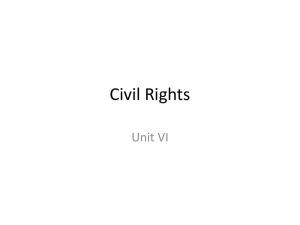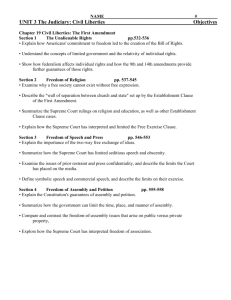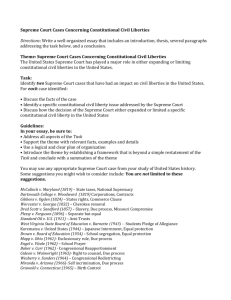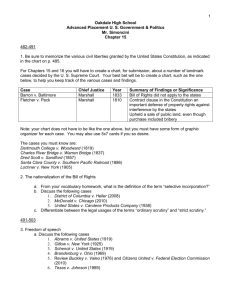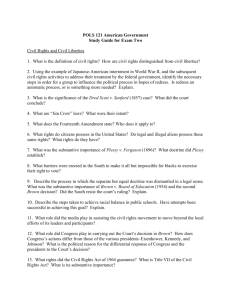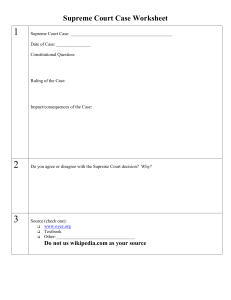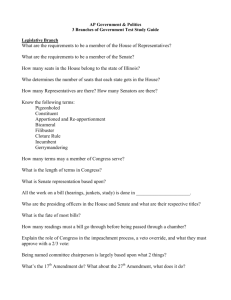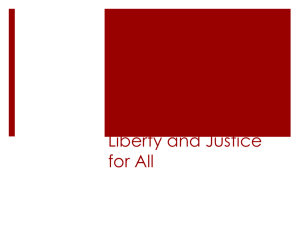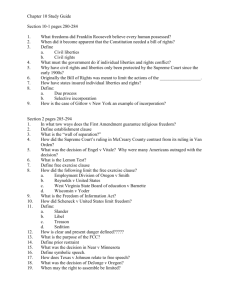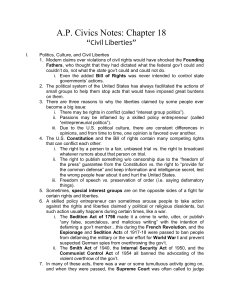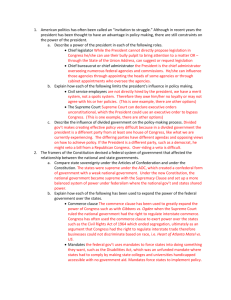AP Gov Exam Review
advertisement
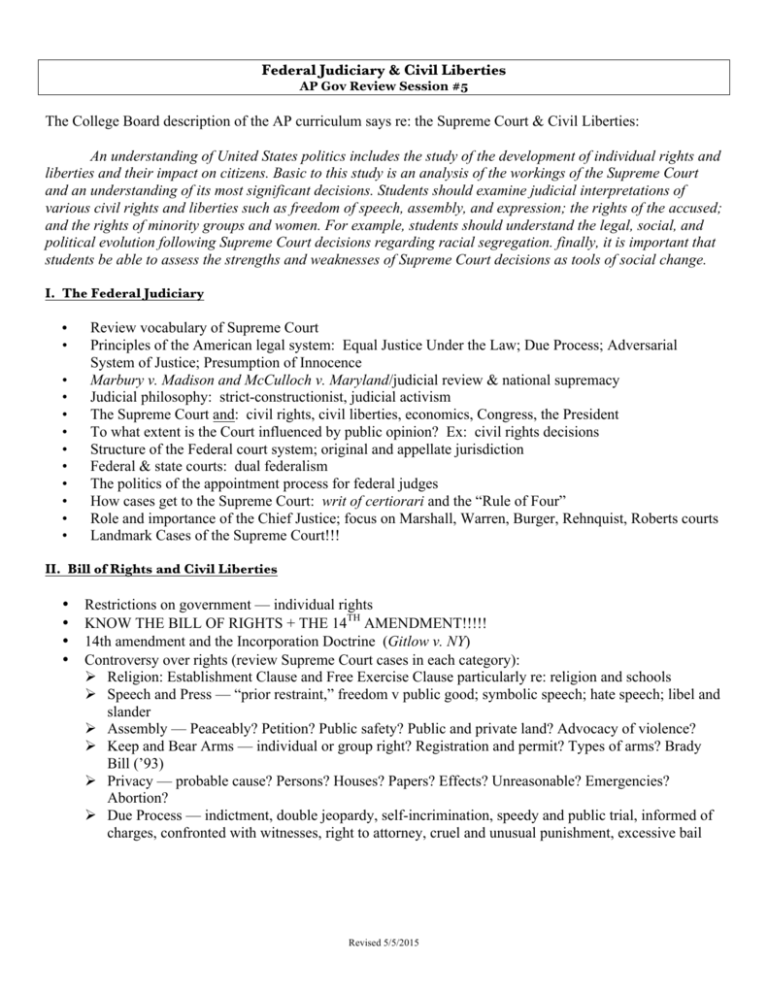
Federal Judiciary & Civil Liberties AP Gov Review Session #5 The College Board description of the AP curriculum says re: the Supreme Court & Civil Liberties: An understanding of United States politics includes the study of the development of individual rights and liberties and their impact on citizens. Basic to this study is an analysis of the workings of the Supreme Court and an understanding of its most significant decisions. Students should examine judicial interpretations of various civil rights and liberties such as freedom of speech, assembly, and expression; the rights of the accused; and the rights of minority groups and women. For example, students should understand the legal, social, and political evolution following Supreme Court decisions regarding racial segregation. finally, it is important that students be able to assess the strengths and weaknesses of Supreme Court decisions as tools of social change. I. The Federal Judiciary • • • • • • • • • • • • Review vocabulary of Supreme Court Principles of the American legal system: Equal Justice Under the Law; Due Process; Adversarial System of Justice; Presumption of Innocence Marbury v. Madison and McCulloch v. Maryland/judicial review & national supremacy Judicial philosophy: strict-constructionist, judicial activism The Supreme Court and: civil rights, civil liberties, economics, Congress, the President To what extent is the Court influenced by public opinion? Ex: civil rights decisions Structure of the Federal court system; original and appellate jurisdiction Federal & state courts: dual federalism The politics of the appointment process for federal judges How cases get to the Supreme Court: writ of certiorari and the “Rule of Four” Role and importance of the Chief Justice; focus on Marshall, Warren, Burger, Rehnquist, Roberts courts Landmark Cases of the Supreme Court!!! II. Bill of Rights and Civil Liberties • • • • Restrictions on government — individual rights KNOW THE BILL OF RIGHTS + THE 14TH AMENDMENT!!!!! 14th amendment and the Incorporation Doctrine (Gitlow v. NY) Controversy over rights (review Supreme Court cases in each category): Ø Religion: Establishment Clause and Free Exercise Clause particularly re: religion and schools Ø Speech and Press — “prior restraint,” freedom v public good; symbolic speech; hate speech; libel and slander Ø Assembly — Peaceably? Petition? Public safety? Public and private land? Advocacy of violence? Ø Keep and Bear Arms — individual or group right? Registration and permit? Types of arms? Brady Bill (’93) Ø Privacy — probable cause? Persons? Houses? Papers? Effects? Unreasonable? Emergencies? Abortion? Ø Due Process — indictment, double jeopardy, self-incrimination, speedy and public trial, informed of charges, confronted with witnesses, right to attorney, cruel and unusual punishment, excessive bail Revised 5/5/2015 III. Civil Rights African American Civil Rights Movement • Constitutional Keys to Civil Rights Cases: Ø 14th Amendment: Citizenship Clause, Due Process Clause, Equal Protection Clause Ø 15th Amendment: suffrage • Jim Crow Laws: de jure segregation (by law) and de facto segregation (in reality), Plessey v Ferguson • NAACP and Brown v Board • “Strict Scrutiny Test” [race] and “Reasonableness Standard” [gender] • Civil Rights Act of 1964 (banned discrimination in public facilities and voter registration) • Voting Rights Act of 1965 (outlawed literacy tests, federal officials register new voters) • Regents of the University of California v. Bakke (1978). - reverse discrimination; no quotas Women and Equal Rights • 14th Amendment and “protective paternalism” • 19th Amendment; controversy over the ERA; Title IX, Roe v Wade • 1970s different treatment of sexes under the law questioned; “reasonableness standard” to “suspect standard” • Gender discrimination current: military draft, child custody, single sex public schools, abortion rights, equality in the workplace Key Review Handouts: • • • • Landmark Cases of the Supreme Court Civil Liberties and 1st Amendment Religion and Speech Civil Rights/Right to Privacy Rights of the Accused Revised 5/5/2015
